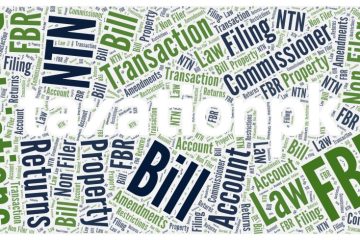Taxes play a vital role in financing a nation’s development and welfare programs. In Pakistan, the income tax system is crucial for collecting revenue from individuals and businesses. Understanding taxable income is key to navigating your tax obligations effectively.
What is Taxable Income?
Taxable income refers to the portion of your total income subject to taxation by the government. This encompasses income from various sources, including:
- Salaries and wages
- Business profits
- Rental income
- Capital gains (e.g., profits from selling assets)
It’s important to note that certain income types, or portions thereof, are exempt from taxation. These may include gifts received, medical allowances, or charitable donations subject to specific requirements.
Calculating Taxable Income:
Determining your taxable income involves two crucial steps:
- Calculating Total Income: This includes all earnings throughout the tax year, such as salaries, bonuses, commissions, and business profits.
- Determining Deductions: Expenses permitted by law to be subtracted from your total income, reducing your taxable amount. Some common deductions include:
- Medical expenses
- Zakat
- Educational expenses (subject to limitations)
- Interest on home loans (up to specific limits)
Once you have calculated both total income and deductions, simply subtract the latter from the former. This results in your taxable income, which is used to determine your tax liability.
Progressive Tax System:
Pakistan employs a progressive tax system, meaning the tax rate increases with your income level. Tax rates can range from 0% to 35%. For instance, if your taxable income falls below Rs. 600,000, you won’t pay any tax. However, with an income between Rs. 600,001 and Rs. 1,200,000, you’ll pay 2.5% tax only on the amount exceeding Rs. 600,000.
Filing Your Tax Return:
To fulfill your tax obligations, you need to file a tax return with the Federal Board of Revenue (FBR). This requires accurate information about your:
- Income
- Deductions
- Taxes paid
Maintaining proper records of income and expenses throughout the year simplifies the filing process. You can also seek guidance from a tax consultant or accountant for professional assistance. Contact Us for personalized guidance.
Conclusion:
Understanding taxable income is crucial for responsible tax compliance in Pakistan. By following these steps and keeping organized records, you can ensure accurate tax payment and avoid potential issues. Remember, seeking professional help can be valuable, especially when dealing with complex tax situations.







what about pension fund if i am investing in private pension fund. Would it be deducted.
Employer contribution will not be taxed but self contribution is not deductible.
What is attributable taxable income and who it calculate for a company tax in Pakisstan